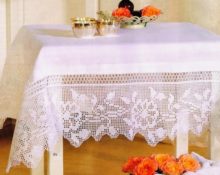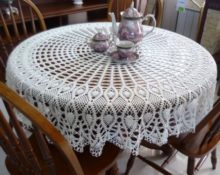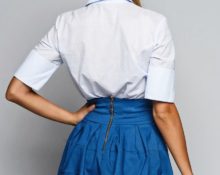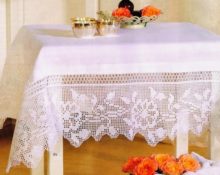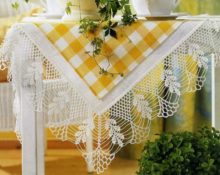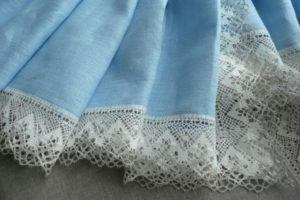 Lace tablecloths create coziness and emphasize the warmth and hospitality of the home. Sometimes you also want to take a break from the abundance of glass and metal; in such cases, let’s add softness and aristocratic lace lines to the interior. Let's consider various options for decorating a tablecloth with your own hands. It’s easier to choose ready-made solutions than to come up with and sew them yourself; focus on your home interior (style, color, shapes).
Lace tablecloths create coziness and emphasize the warmth and hospitality of the home. Sometimes you also want to take a break from the abundance of glass and metal; in such cases, let’s add softness and aristocratic lace lines to the interior. Let's consider various options for decorating a tablecloth with your own hands. It’s easier to choose ready-made solutions than to come up with and sew them yourself; focus on your home interior (style, color, shapes).
Options for placing lace on a tablecloth
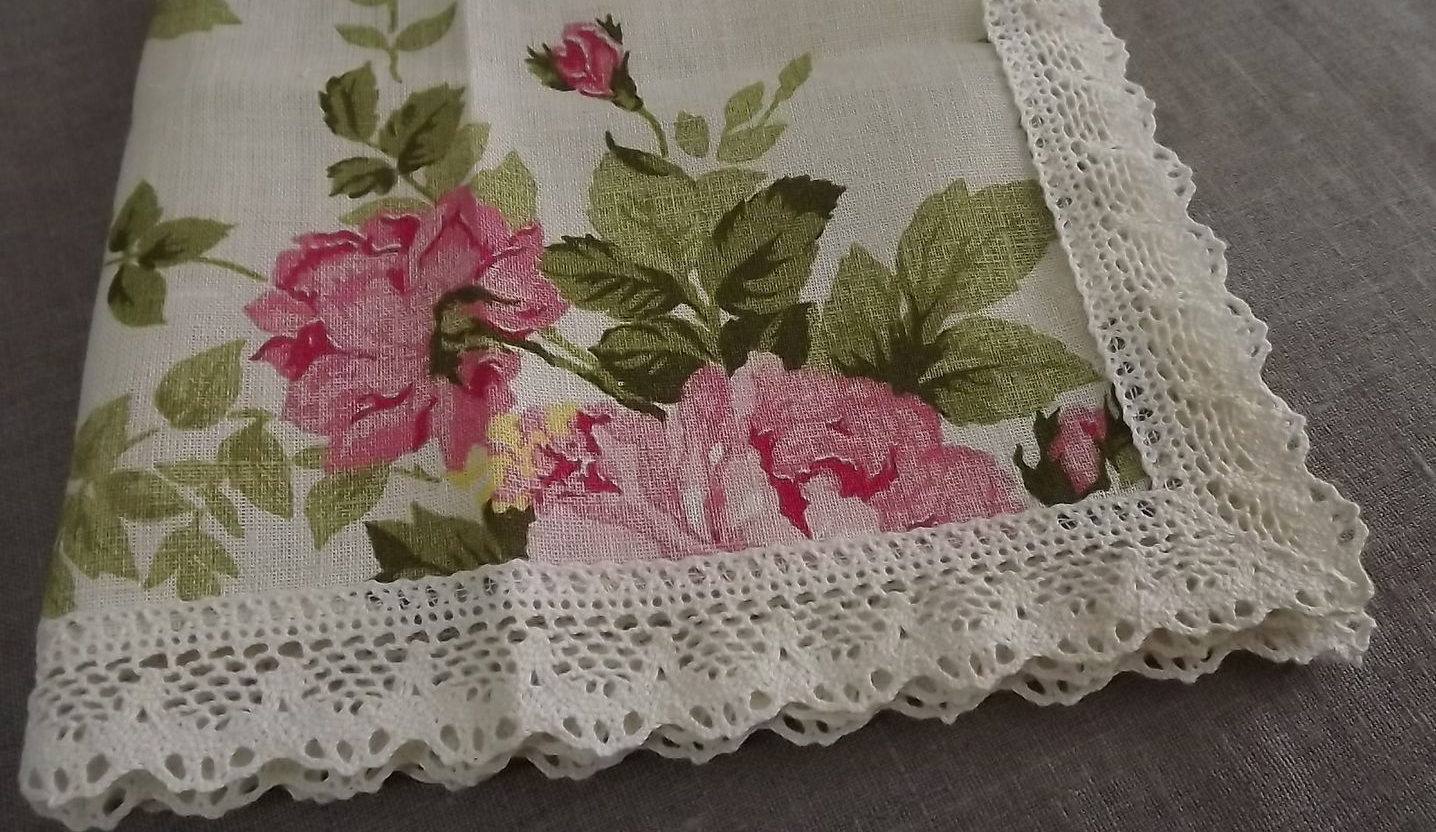 Types of lace trim (photo):
Types of lace trim (photo):
- Narrow stripes - edge edges. Sew along the perimeter of the tablecloth overhangs.
- Stripes, sewn onto the cloth and forming a pattern.
- Lace medallions. Completed lace elements are sewn onto pre-designated areas of the fabric.
- Lace binding fragments (motifs) of the tablecloth. In this case, we make blanks from the main material, trim or tie them with lace, then sew them together into a single whole.
Advice! If you can’t make a classic frame around the perimeter of the product, then trim it with lace ribbons.
Choosing lace for tablecloth decoration
Types of lace trim:
Actually, lace made using bobbins or using a needle. This is difficult manual work. Can be made by the meter or in individual parts of various shapes. It is sewn onto the fabric or sewn into pre-made holes in the fabric. Along the perimeter of the overhang it is rarely used due to its cost and the high consumption of this type of finishing.
Crochet canvas in various techniques. Be it fillet knitting, openwork knitting or individual motifs - squares.
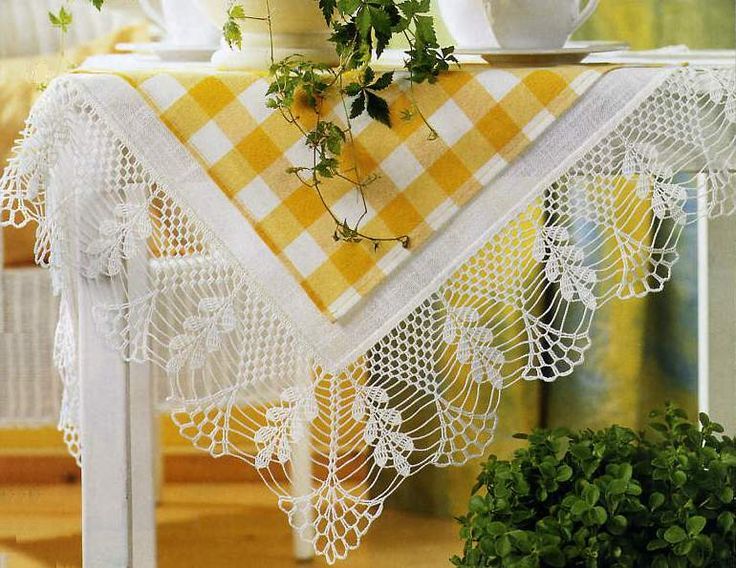
Openwork crochet tablecloth
Embroidery with cut out areas - "richelieu".
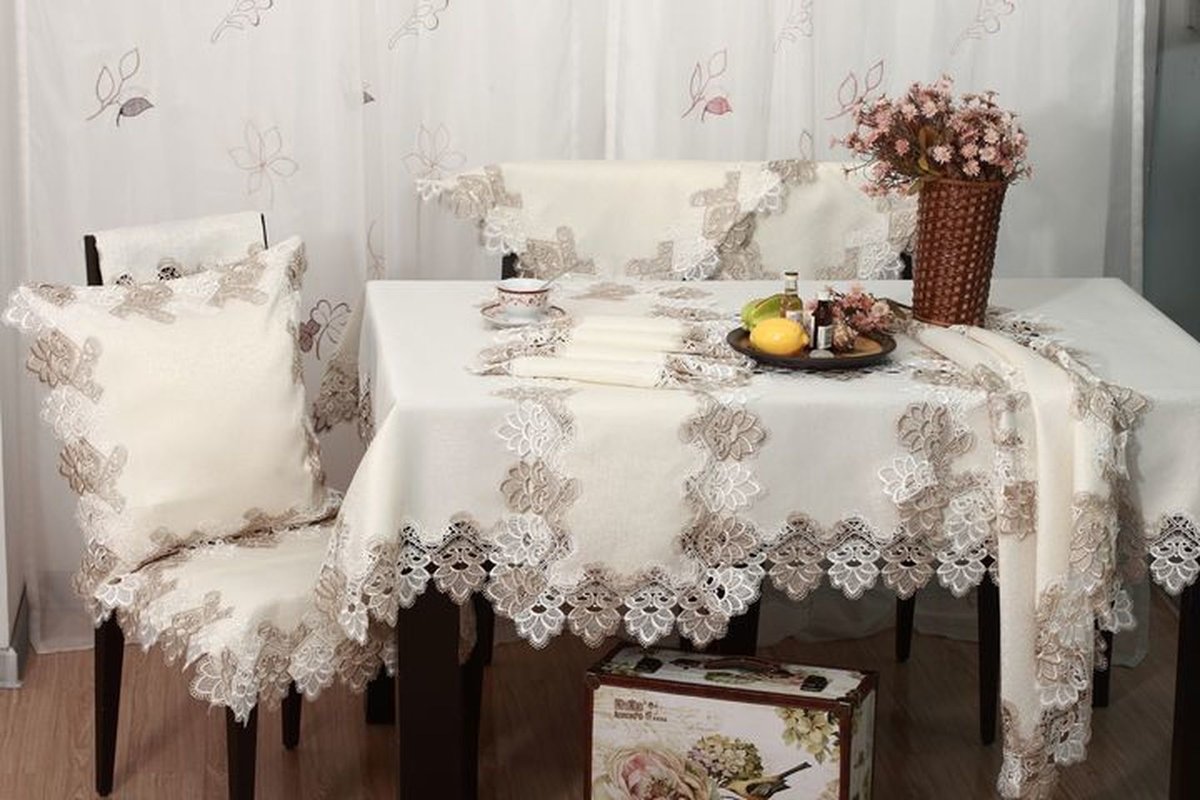
Cutwork lace
Macrame stripes great fit for country style.
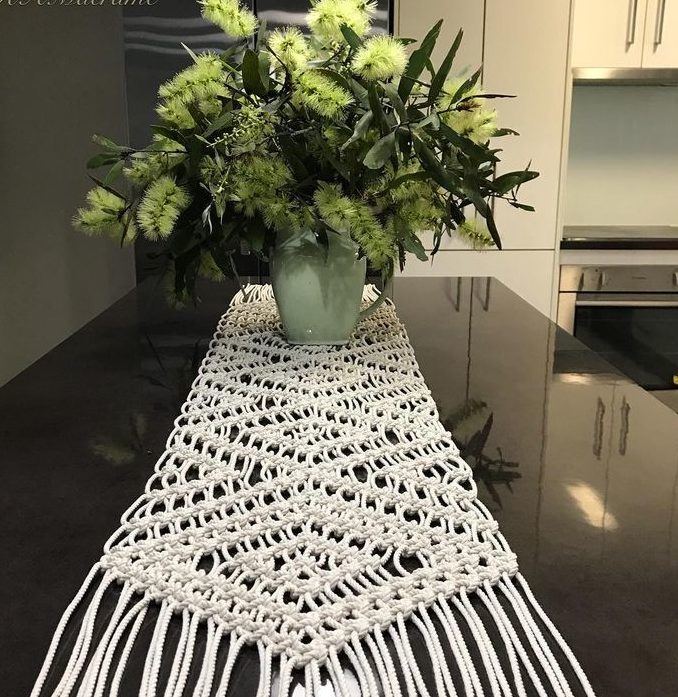
Tablecloth decoration or macrame table decoration
Guipure and lace fabric industrial production. Can be used for any design options.
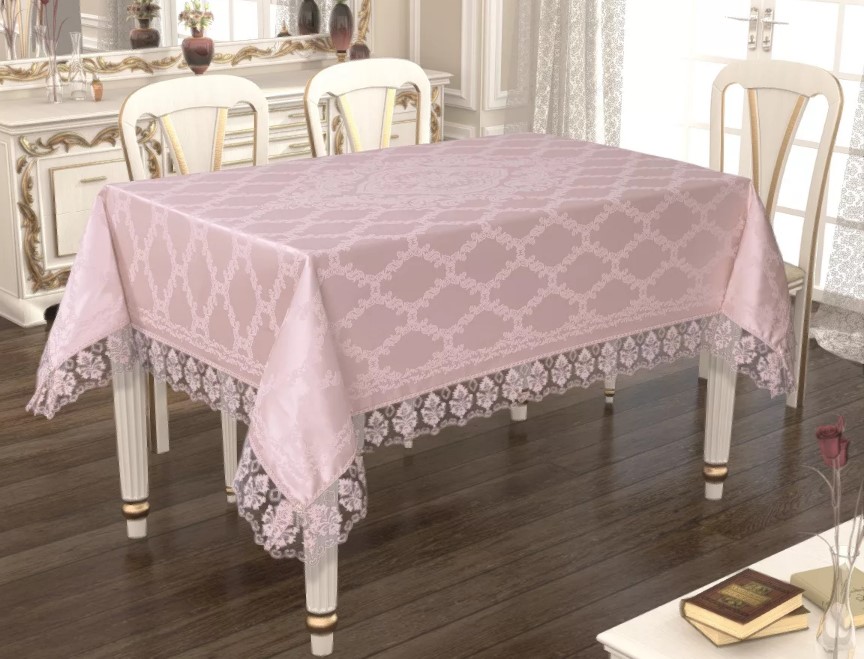
Sew guipure to the tablecloth
Decor options from Provence to classics
- Provence. A combination of lace medallions with ribbons of lilac, lilac, lavender colors. Tablecloths are often plain, combining several shades of the same color.
- Baroque. Feel free to choose lace with gold threads or dark, bright ones.
- Country. A kitchen in this style does not imply a riot of color. A tablecloth made of coarse unbleached linen or burlap is trimmed with white lace inserts or valances.
- Vintage. Did you manage to get your hands on some “grandmother’s” lace, such as antique cutwork or fillet crochet? These elements on the tablecloth will give a special look to your kitchen.
- Classic. Light lace along the overhang of the tablecloth. Strict lines, geometric patterns.The classic style attracts with its purity of image.
Step by step how to beautifully sew lace
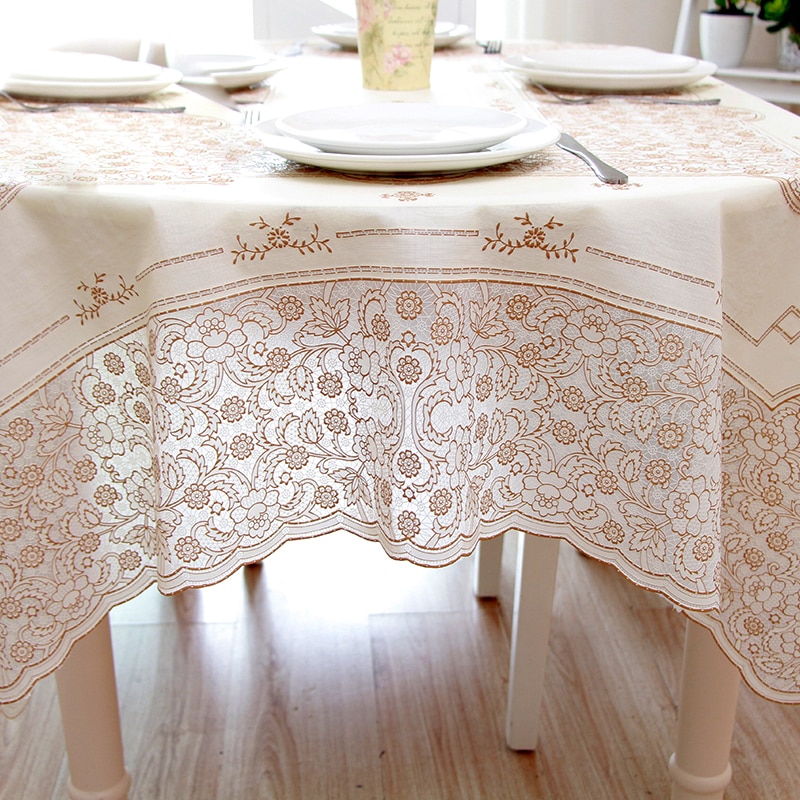
Depending on the position on the panel, as well as on the nature of the lace itself, the work will differ:
Crochet
If you know how to knit and are not afraid of monotonous work, then the crocheted model is for you.
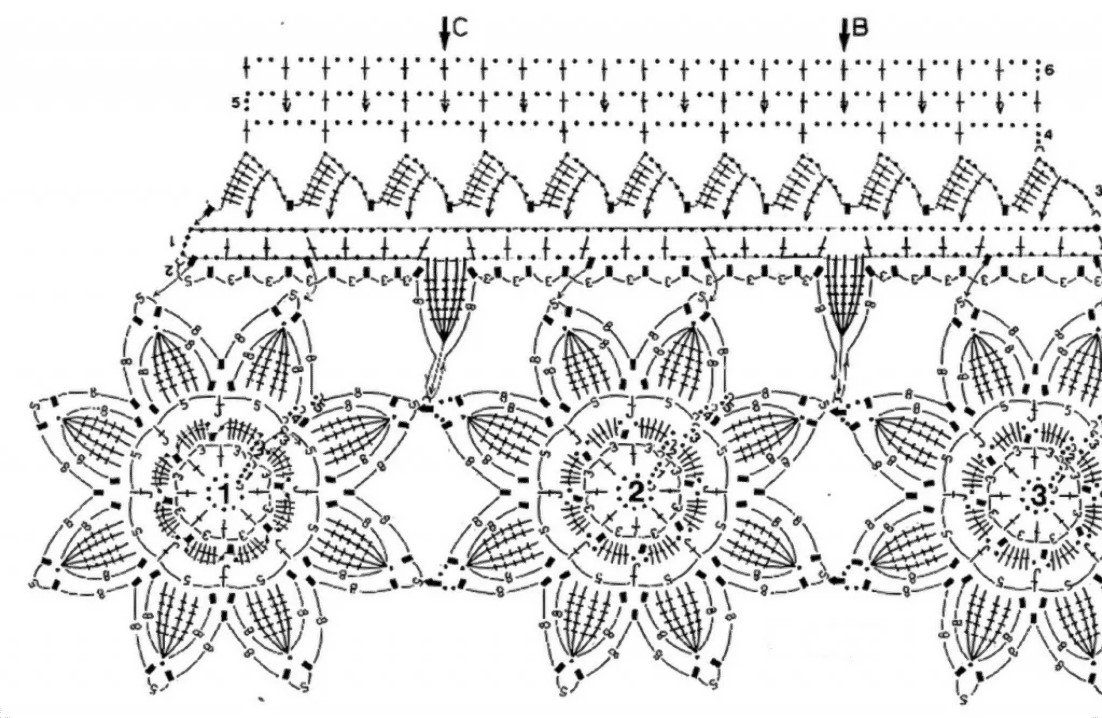 Here are the possible options:
Here are the possible options:
1. The tablecloth is sewn around the perimeter with a wide zigzag stitch, then using the resulting loops we begin to knit the pattern we like.
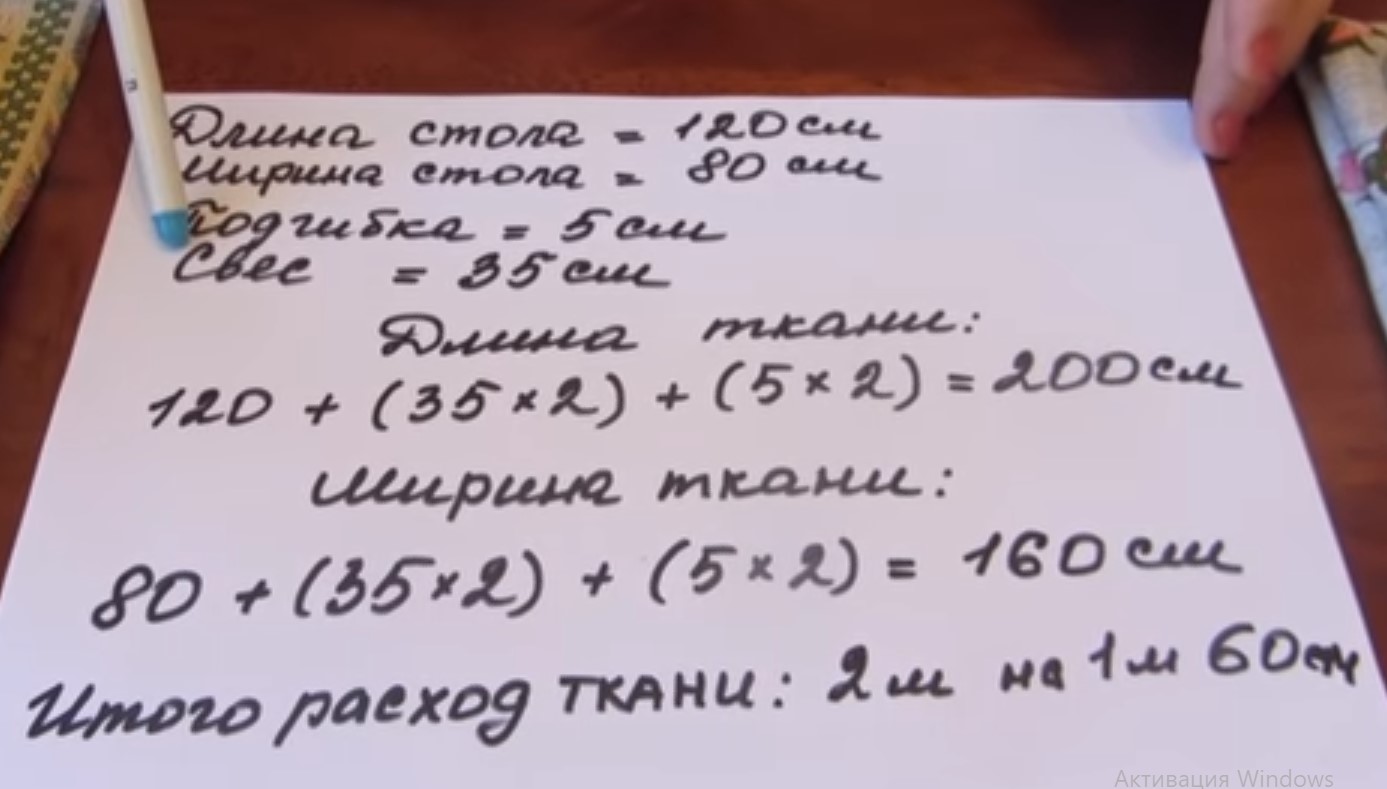 2. First we knit the fabric, then sew it to the edge of the tablecloth:
2. First we knit the fabric, then sew it to the edge of the tablecloth:
- We calculate how much crocheted lace we need. The fabric must be moistened and ironed before measuring.
- Choosing a knitting motif.
- We knit a finished valance.
- We bend the edge of the tablecloth.
- Iron it.
- We sew it in a convenient way.
- We apply our knitting to the front side.
- Let's baste.
- Sew with machine stitch.
- Iron through a damp cloth.
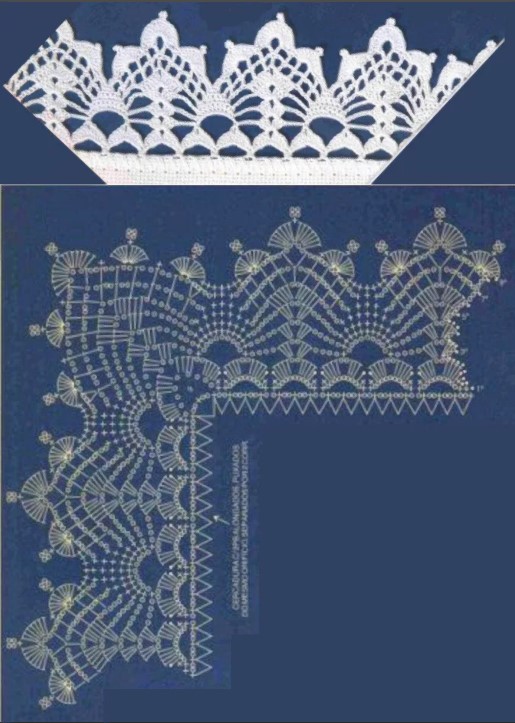
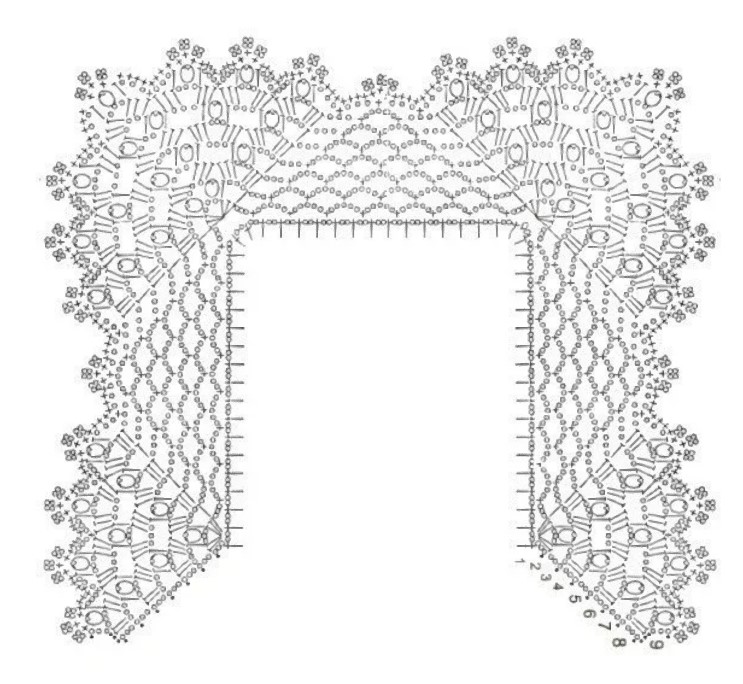
Important! Check first to see if your threads are shedding. To do this, wet them, then iron them on a light cloth. They should not be dyed, otherwise the threads cannot be used.
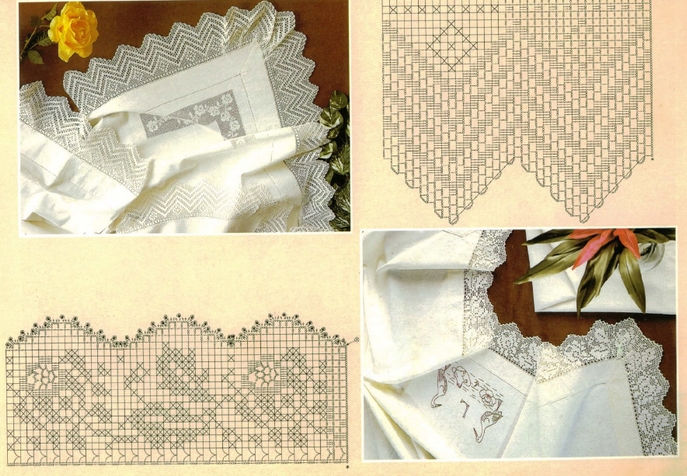 If you are tying a product, then make corner elements. If you sew ready-made knitted strips, then we do not sew the corner elements.
If you are tying a product, then make corner elements. If you sew ready-made knitted strips, then we do not sew the corner elements.
We create a tablecloth from motifs
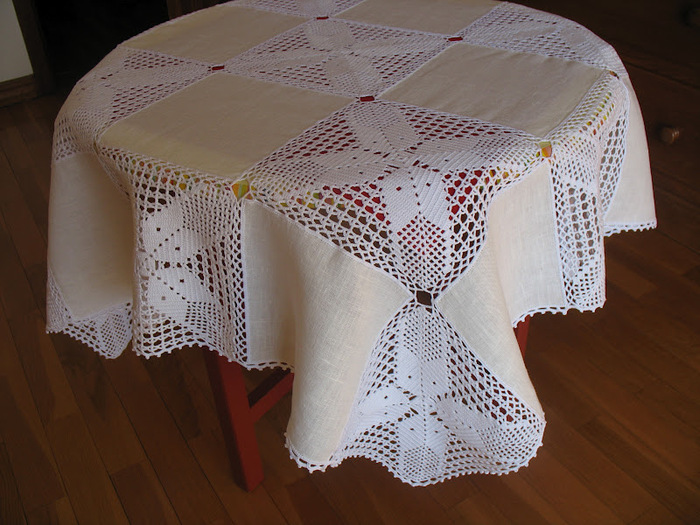 Sequence of work:
Sequence of work:
Determine how much area will be occupied openwork inserts.
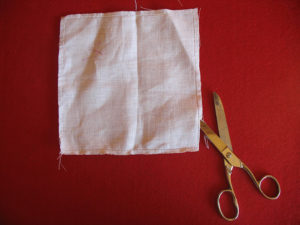
We make them (we cut them out, knit them or weave them).
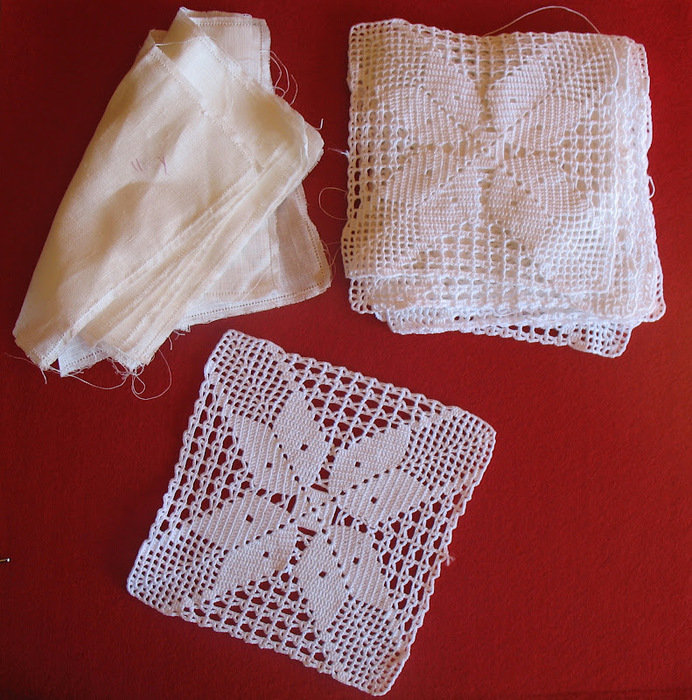 We cut out blanks of the main fabric of the tablecloth.
We cut out blanks of the main fabric of the tablecloth.
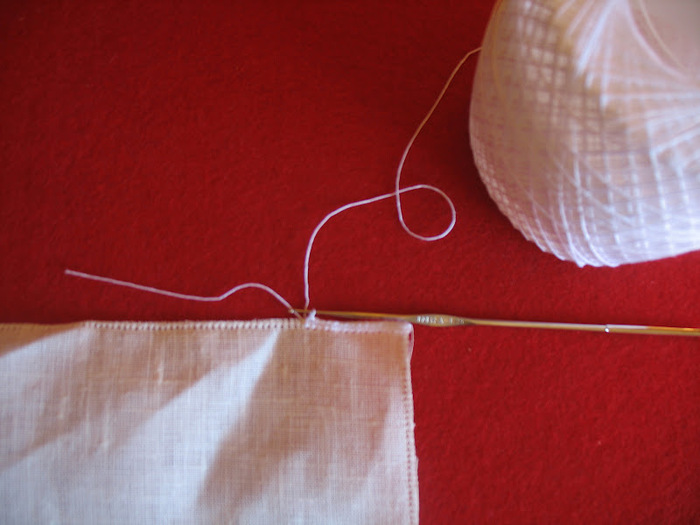 We bend the edges and sew a machine zigzag stitch. If desired, you can do this manually using an edge seam.
We bend the edges and sew a machine zigzag stitch. If desired, you can do this manually using an edge seam.
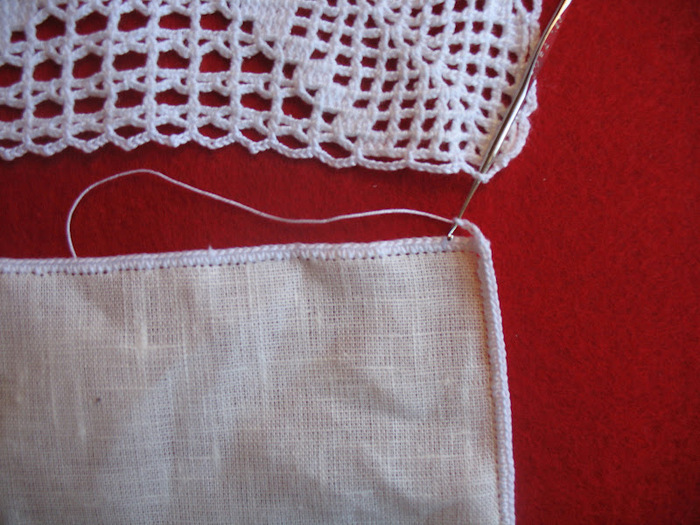 Openwork and linen elements we connect using air loops and connecting posts with a crochet hook.
Openwork and linen elements we connect using air loops and connecting posts with a crochet hook.
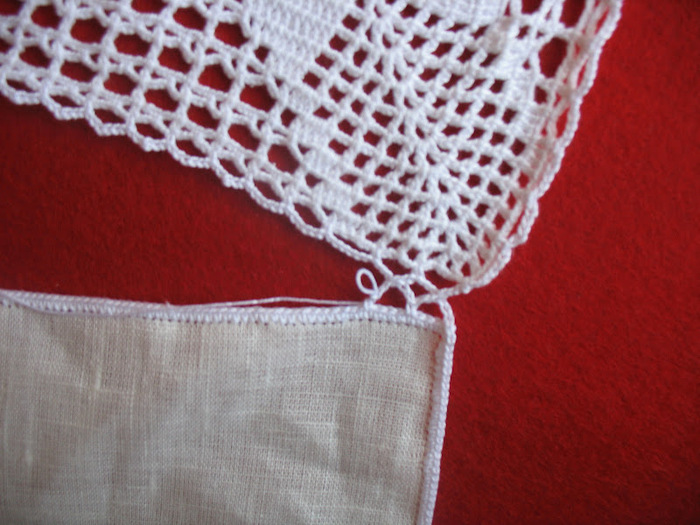
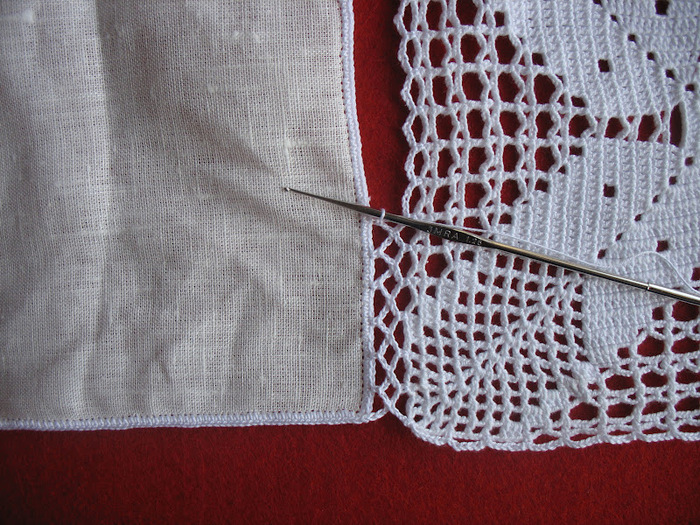 We crochet the resulting product along the edge with several rows of double crochets or any openwork pattern.
We crochet the resulting product along the edge with several rows of double crochets or any openwork pattern.
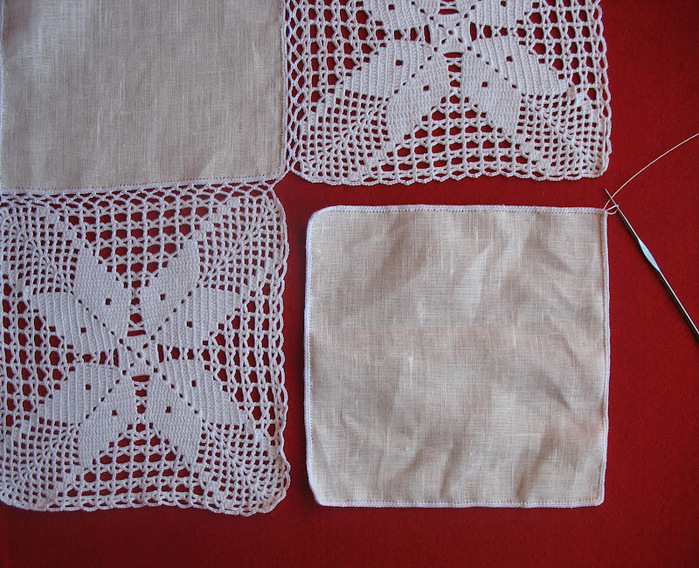
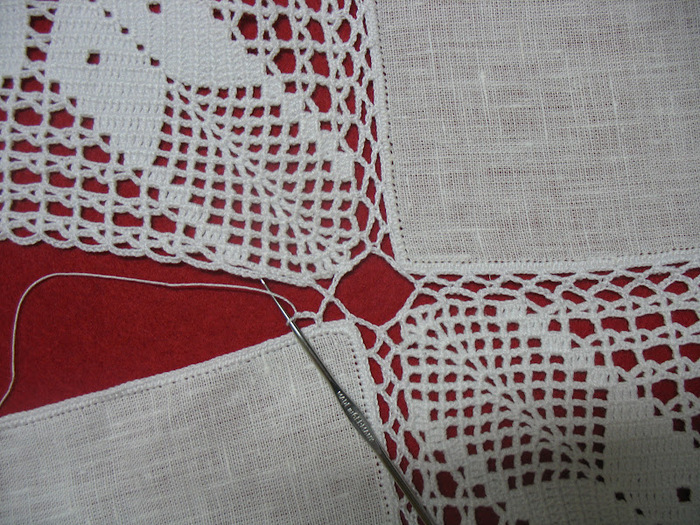 Steam.
Steam.
Decor with braid
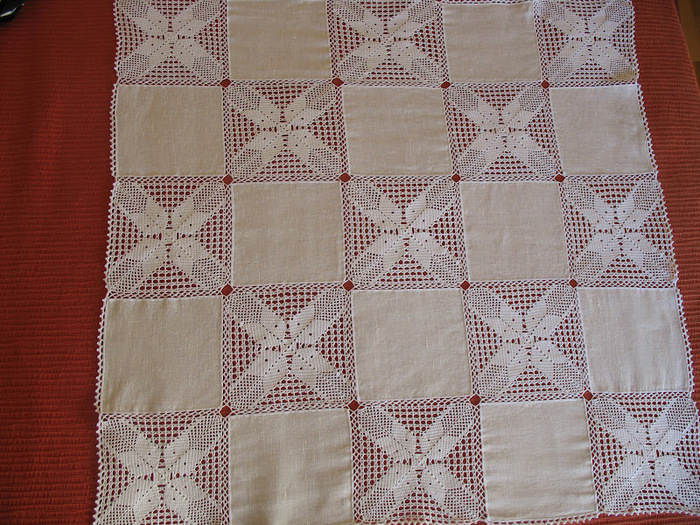
We trim with ready-made openwork stripes:
- We measure out what is needed the amount of braid, taking into account the corners.
- If the fabric is rough, then you don’t need to tuck it, but just overlay the edges.
- We pin the braid and leave a “loop” at the corners. We start from one corner.
- We hide the excess fabric of the corners in a fold on the underside of the braid. There should be a straight line across the face.
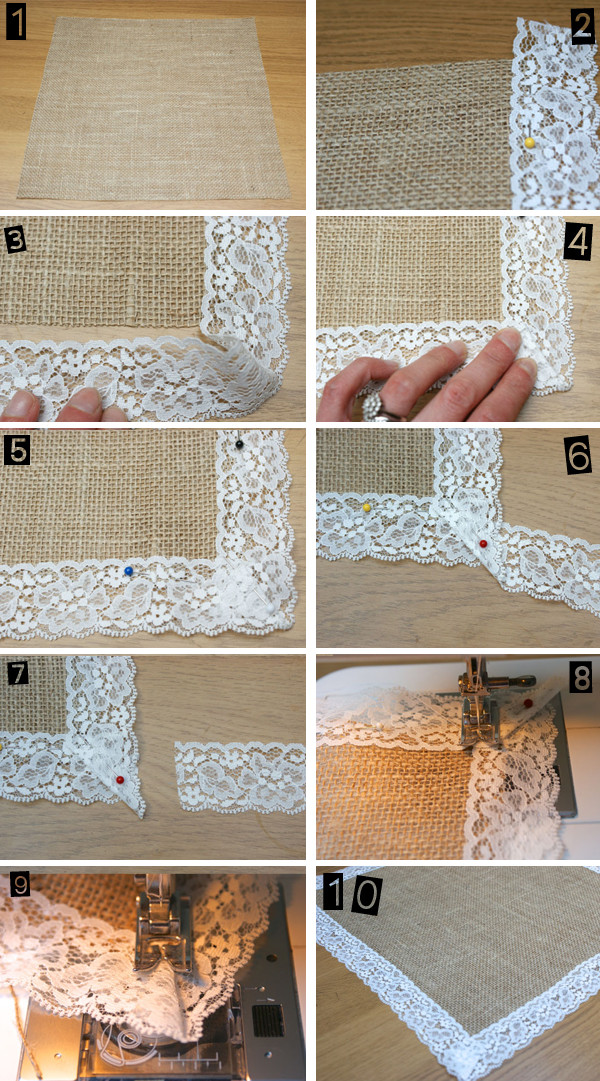
- We reach the place where it all began.
- We hide the end of the braid in a fold at the corner.
- We machine stitch, if necessary, pre-baste.
- You can make a double line, but this is optional.
- Iron the product.
Whatever the style of the interior of your home, there will always be a place for a lace tablecloth.


 0
0